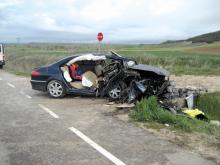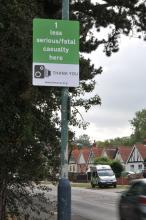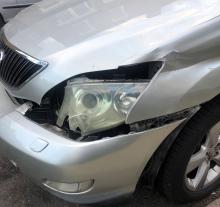Europe’s drive for improved road safety will see new targets being set. Previous ambitious plans to reduce road casualty rates have not been achieved, so new strategies are being devised. The
However, progress has been sluggish. Road deaths in the EU fell by just 2% in 2017 compared to 2016: 25,300 people lost their lives on the EU roads in 2017, a figure that has hardly changed in four years.
New strategies include the introduction of new vehicle safety standards and updated rules on road infrastructure safety management and a strategy for automated driving.
The ETSC says it hopes that the long-awaited impetus of the third mobility package could contribute to resuming road safety improvement soon and driving progress in the next decade. It points out that alongside legal and moral obligations, there is a strong economic case to include the prevention of road traffic deaths and serious injuries in EU health policy as well as transport.
Both deaths and serious injuries carry a huge cost to society, as the ETSC highlights. Given the financial difficulties that many EU countries face, the value to society of improving road safety should be taken into account in the policy and budgetary planning process, expressing in monetary terms the moral imperative of reducing road risk. It should be clear to policy-makers that road safety policies are a sound investment.
The political will to improve on recent poor progress until 2020 is important. The lack of it at EU Member State level has contributed to a decline in levels of police enforcement, a failure to invest in safer infrastructure and limited action on tackling speed and drink driving in a number of countries.
The ETSC is urging the Romanian presidency of the EU to finalise conclusions on the infrastructure safety management directive and the driving and resting hours regulation as well as the budget instruments before European parliamentary elections.
Due to the end of the current mandate of the European Parliament and European Commission, the presidency will be under even greater pressure to deliver results within a very tight timeframe. Moreover, it will be dealing with finalising a backlog of proposals issued by the European Commission very late into this term. Road safety benefits must be prioritised when deciding how to juggle this busy workload.
The Romanian presidency should acknowledge the strong return on investment of road safety improvements and prioritise life-saving measures at EU and national level. It should use the opportunity of its presidency to pursue key aims. The ETSC points out that leadership is needed in adopting the new EU legislations on infrastructure safety and the EU budget. It also says that there should be a focus on national budgetary spending for priorities that can have an impact quickly, such as enforcement and high-risk site management of infrastructure. In addition, the ETSC says the presidency should encourage EU Member States to stay tough on enforcement both in terms of budgets and showing political leadership.
Europe’s drive for safer roads sets new targets
Europe’s drive for improved road safety will see new targets being set. Previous ambitious plans to reduce road casualty rates have not been achieved, so new strategies are being devised. The European Transport Safety Commission (ETSC) is setting out its latest plans. In 2010, the European Union renewed its commitment to improve road safety by setting a target of reducing road deaths by 50% by 2020, compared to 2010 levels. This target followed an earlier target set in 2001 to halve road deaths by 2010. A n








